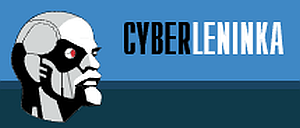The Concept of Utility as the Foundation of Engineering Ontology in the Context of Platonism
DOI:
https://doi.org/10.47850/RL.2025.6.3.26-39Keywords:
utility, Platonism, activity, cosmos, engineering ontology, technical object, information societyAbstract
This article addresses the disintegration of human subjectivity, the loss of existential meaning, and the transition to a “third artificial nature” through the framework of engineering ontology, as manifested in the processes of designing and managing artificial objects. It argues that the subject’s relation to technical objects is determined by utility, understood as the fundamental principle of engineering ontology. The study aims to reinterpret the concept of utility within the context of Platonism and to assess its heuristic potential for responding to the challenges of the information society. The methodological basis comprises: 1) a comparative analysis of Platonic interpretations of utility in the history of philosophy and the philosophy of technology; and 2) a transcendental approach aimed at identifying the a priori conditions for the possibility of “utility” and its functional characteristics. The findings suggest that conceptualizing utility in Platonism as a mechanism enabling the transition from the cosmos of potential solutions to the metacosmos of realized inventions – actualized through acts of technical creation – offers a productive conceptual framework for addressing the pressing challenges of the information age.
References
Акофф, Р., Эмери, Ф. (1974). О целеустремленных системах. М.: Советское радио.
Ackoff, R., Emery, F. (1974). On Purposeful Systems. Moscow. (In Russ.)
Боргест, Н. М. (2018). Онтология проектирования от Витрувия до Виттиха. Онтология проектирования. Т. 8. № 4. С. 487-522. DOI: 10.18287/2223-9537-2018-8-4-487-522
Borgest, N. M. (2018). The Ontologies of Designing from Vitruvia to Vittikh. Ontology of designing. Vol. 8. No. 4. Pp. 487-522. (In Russ.)
Вольф, М. Н. (2019). Сила, изменяющая облик Земли: обзор книги Фридриха Дессауэра «Спор о технике». Философия науки. № 1 (80). С. 134-153. DOI: 10.15372/PS2019019
Volf, M. N. (2019). The Force Changing the Face of the Earth: Review of the book «The Controversy on the Technology» by Friedrich Dessauer. Philosophy of Science. No. 1 (80). Pp. 134-153. (In Russ.)
Вольф, Х. (2001). Метафизика. Христиан Вольф и метафизика в России. СПб.: РХГИ. С. 227-358.
Wolf, Ch. (2001). Metaphysics. In Christian Wolf and Metaphysics in Russia. St. Petersburg. Pp. 227-358. (In Russ.)
Гартман, Н. (2002). Этика. СПб.: Владимир Даль.
Hartmann, N. (2002). Ethics. St. Petersburg. (In Russ.)
Дессауэр, Ф. (2024). Человек и космос. Опыт. Спор о технике. Т. 1. Самара: Изд-во «Мудрая черепаха», ИП Алексеев Андрей Павлович.
Dessauer, F (2024). Man and Cosmos. Experience. The Dispute about Technology. Vol. 1. Samara. (In Russ.)
Кассирер, Э. (1912). Познание и действительность: понятие о субстанции и понятие о функции. СПб.: Шиповник.
Kassirer, E. (1912). Cognition and Reality: The Concept of Substance and the Concept of Function. St. Petersburg. (In Russ.)
Лейбниц, Г. В. (1982). Начала природы и благодати, основанные на разуме. Сочинения: в 4 т. Т. 1. М.: Мысль. С. 404-412.
Leibniz, G. W. (1982). The Principles of Nature and of Grace, Based on Reason. In Works in 4 vols. Vol. 1. Moscow. Pp. 404-412. (In Russ.)
Лейбниц, Г. В. (1983). Новые опыты о человеческом разумении автора системы предустановленной гармонии. Сочинения: в 4 т. Т. 2. М.: Мысль. С. 47-545.
Leibniz, G. W. (1983). New Essays on the Understanding, by the Author of the System of Pre-established Harmony. In Works in 4 vols. Vol. 2. Moscow. Pp. 47-545. (In Russ.)
Лейбниц, Г. В. (1984a). Абсолютно первые истины. Сочинения: в 4 т. Т. 3. М.: Мысль. С. 123-126.
Leibniz, G. W. (1984a). Absolutely First Truths. In Works in 4 vols. Vol. 3. Moscow. Pp. 123 126. (In Russ.)
Лейбниц, Г. В. (1984б). Анагогический опыт исследования причин. Сочинения: в 4 т. Т. 3. М.: Мысль. С. 127-137.
Leibniz, G. W. (1984b). An Anagogical Essay in the Investigation of Causes. In Works in 4 vols. Vol. 3. Moscow. Pp. 127-137. (In Russ.)
Лосев, А.Ф. (1998). История античной философии в конспективном изложении. М.: ЧеРо.
Losev, A. F. (1998). The History of Ancient Philosophy in a Synopsis. Moscow. (In Russ.)
Лосев, А. Ф., Тахо-Годи, А. А. (1993). Платон. Аристотель. М.: Молодая гвардия.
Losev, A. F., Tahoe-Godi, A. A. (1993). Plato. Aristotle. Moscow. (In Russ.)
Назаретян, А. П. (2014). Воспитательный потенциал синергетики: гипотеза техно-гуманитарного баланса. Научный результат. Сер. Педагогика и психология образования. Т. 1. № 2 (2). С. 98-105.
Nazaretyan, A. P. (2014). The Educational Potential of Synergetrics: Hypothesis of Techno and Humanitarian Balance. Research Result. Pedagogy and Psychology of Education. Vol. 1. No. 2 (2). Pp. 98-105. (In Russ.)
Нестеров, А. Ю. (2017). Семиотические основания техники и технического сознания. Самара: Изд-во Самарской гуманитарной академии.
Nesterov, A. Yu. (2017). Semiotic Bases of Technique and Technical Consciousness. Samara. (In Russ.)
Нестеров, А. Ю. (2021). Логика прогресса и проблема человека. Международная научно-практическая конференция «Человек в информационном обществе», посвященная 60-летию полета в космос Ю. А. Гагарина. С. 608-611.
Nesterov, A. Yu. (2021). The Logic of Progress and the Human Problem. In Research and practical international conference dedicated to the 60th anniversary of Yuri Gagarin's space flight. Pp. 608-611. (In Russ.)
Нестеров, А. Ю. (2024). Истина и польза в техническом мировоззрении. Философия науки и техники. Т. 29. № 1. С. 84-97. DOI: 10.21146/2413-9084-2024-29-1-84-97
Nesterov, A. Yu. (2024). Truth and Usefulness in the Technical Worldview. Philosophy of Science and Technology. Vol. 29. No. 1. Pp. 84-97. (In Russ.)
Николай Кузанский. (1979). Простец об уме. Сочинения: в 2 т. Т. 1. М.: Мысль. С. 385-444.
Nicholas of Cusa. (1979). The Layman on Mind. In Works in 2 vols. Vol. 1. Moscow. Pp. 385 444. (In Russ.)
Нордманн, А. (2022). Деятельностное знание или: How to Express Things in Works? Семиотические исследования. Т. 2. № 1. С. 16-22. DOI: 10.18287/2782-2966-2022-2-1-16-22
Nordmann, A. (2022). Working Knowledge or: How to Express Things in Works? Semiotic Studies. Vol. 2. No. 1. pp. 16-22. (In Russ.)
Павленко, А. (2010). Возможность техники. СПб.: Алетейя.
Pavlenko, A. (2010). Potential of Technology. St. Petersburg. (In Russ.)
Платон. (1990a). Евтидем. Собрание сочинений: в 4 т. Т. 1. М.: Мысль. С. 158-202.
Plato. (1990a). Euthydemus. In Works in 4 vols. Vol. 1. Moscow. Pp. 158-202. (In Russ.)
Платон. (1990б). Кратил. Собрание сочинений: в 4 т. Т. 1. М.: Мысль. С. 613-681.
Plato. (1990b). Cratylus. In Works in 4 vols. Vol. 1. Moscow. Pp. 613-681. (In Russ.)
Платон. (1994). Государство. Собрание сочинений: в 4 т. Т. 3. М.: Мысль. С. 79-420.
Plato. (1994). The Republic. In Works in 4 vols. Vol. 3. Moscow. Pp. 79-420. (In Russ.)
Спиноза, Б. (2001). Этика. М.: Харвест; М.: АСТ.
Spinoza, B. (2001). Ethics. Minsk; Moscow. (In Russ.)
Тегмарк, М. (2019). Жизнь 3.0. Быть человеком в эпоху искусственного интеллекта. М.: Изд-во ACT: CORPUS.
Tegmark, M. (2019). Life 3.0. Being Human in the Age of Artificial Intelligence. Moscow. (In Russ.)
Чернышевский, Н. Г. (1987). Антропологический принцип в философии. Сочинения: в 2 т. Т. 2. М.: Мысль. С. 146-229.
Chernyshevsky, N. G. (1987). Anthropological Principle in Philosophy. In Works in 2 vols. Vol. 2. Moscow. Pp. 146-229. (In Russ.)
Энгельмейер, П. К. (2019). Теория творчества. М.: Либроком.
Engelmeyer, P. K. (2019). Theory of Creativity. Moscow. (In Russ.)
Ястреб, Н. А. (2021а). На границе функционализма и семиотики: два способа изменения функций и смыслов технических объектов. Семиотические исследования. Т. 1. № 1. С. 19-25. DOI: 10.18287/2782-2966-2021-1-1-19-25
Yastreb, N. A. (2021a). Between Functionalism and Semiotics: Two Ways to Change the Functions and Meanings of Technical Objects. Semiotic Studies. Vol. 1. No. 1. Pp. 19-25. (In Russ.)
Ястреб, Н. А. (2021б). Открывая инструментализм заново: философия техники в работах классиков американского прагматизма. Вестник Томского государственного университета. Философия. Социология. Политология. № 64. С. 241-252. DOI: 10.17223/1998863Х/64/23
Yastreb, N. A. (2021b). Rediscovering Instrumentalism: The Philosophy of Technology in the Works of the Classics of American Pragmatism. Tomsk State University Journal. Philosophy. Sociology. Political Science. No. 64. Pp. 241-252. (In Russ.)
Ястреб, Н. А. (2022). Как знание становится техническим объектом: эпистемические практики в области информационных технологий. Семиотические исследования. Т. 2. № 1. С. 10-15. DOI: 10.18287/2782-2966-2022-2-1-10-15
Yastreb, N. A. (2022). How Knowledge Becomes a Technical Object: Epistemic Practices in Information Technology. Semiotic studies. Vol. 2. No. 1. Pp. 10-15. (In Russ.)
Nordmann, A. (2020). The Grammar of Things. Technology and Language. No. 1 (1). Pp. 85 90. DOI: 10.48417/technolang.2020.01.18
Downloads
Published
How to Cite
Issue
Section
License

This work is licensed under a Creative Commons Attribution-NonCommercial-NoDerivatives 4.0 International License.
https://oc.philosophy.nsc.ru/remote.php/webdav/%D0%94%D0%BE%D0%B3%D0%BE%D0%B2%D0%BE%D1%80%20%D1%81%20%D0%B0%D0%B2%D1%82%D0%BE%D1%80%D0%BE%D0%BC%20RL-%D0%BF%D1%80%D0%B0%D0%B2.doc










